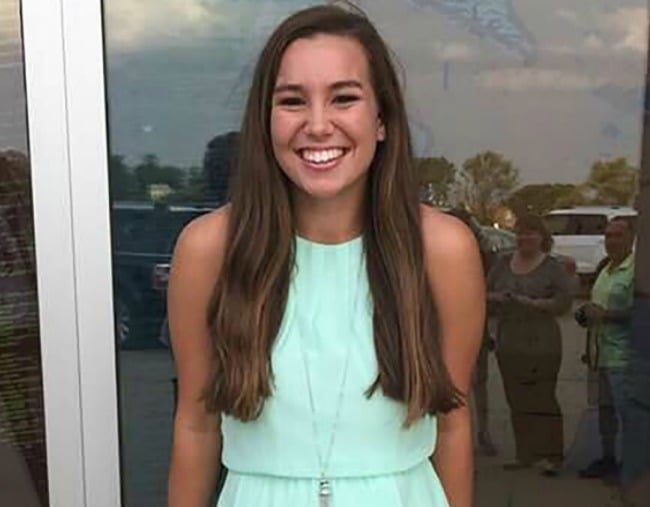
On the evening of July 18, 2018, Mollie Tibbetts set out for her daily run.
The 20-year-old would never return home.
Mollie, a sophomore from the University of Iowa, lived in Brooklyn, a small town of just 1400 residents.
According to the Washington Post, when the keen runner didn’t turn up to her job at a local daycare centre the next morning, her concerned colleagues called her boyfriend of two years, Dalton Jack.
Dalton hadn’t heard from her either.
Dalton then called her family and together they contacted the local police department and reported the psychology student as missing.
Within days, a massive search was underway in the local area and Mollie’s disappearance had made international headlines.
Hundreds of people from the small town volunteered to scour the area, looking for any trace of Mollie. Five days later, the FBI and state investigators took over the investigation.
They soon discovered the last time Mollie was seen alive was two days before she went missing.
The Brooklyn native had been staying at Dalton’s house, and looking after his dogs, while he worked at his construction job 80 kilometres away.
He left for that job at 5am on July 16.
On the day of her disappearance, Dalton received two messages from Mollie – one text message and one Snapchat message.



Top Comments
Awful, so tragic.
I wonder she had appeared to go along with him joining her instead, just for a moment while actually calling 911 instead of saying she would - but pretending it was a social call would have made any difference?
For example:
Hi, what's your name?
(He gives his name)
(she dials 911)
Hi Sophie, It's Molly?
I'm just out on a run on ... Road (give location)
I've made a new friend (says his name) just now, he's running right beside me
Thought he might like to have pizza with us?
Can you meet me in a few minutes for dinner, like we've planned?
(Hopefully the operator would catch on and ask her Yes/No questions while sending a police unit ASAP)
How about he just not kill her when she told him to leave her alone? Rather than imply she should have done XYZ, he should have done nothing....except kept driving.
You can't control what he does, you can control what you do.
Yep. And we can control what we do, do everything "right" and still get murdered. So how about we keep all the blame where it belongs - on the vile excuse for a human being who actually killed her?
Yes you can to a degree, but in a situation like that NONE of us know how we are going to react and you are also at the mercy of an unstable, unknown person seeking to do you harm - freezing is a very typical response. But how about just not comment on what a murder victim “should” have done and imply how that could have saved her life (I.e. victim-blaming a girl who was doing nothing more ordinary than going for a jog in her neighbourhood as she had 100s of times before). There was no one there except the perpetrator so we will never really know what did or did not happen.